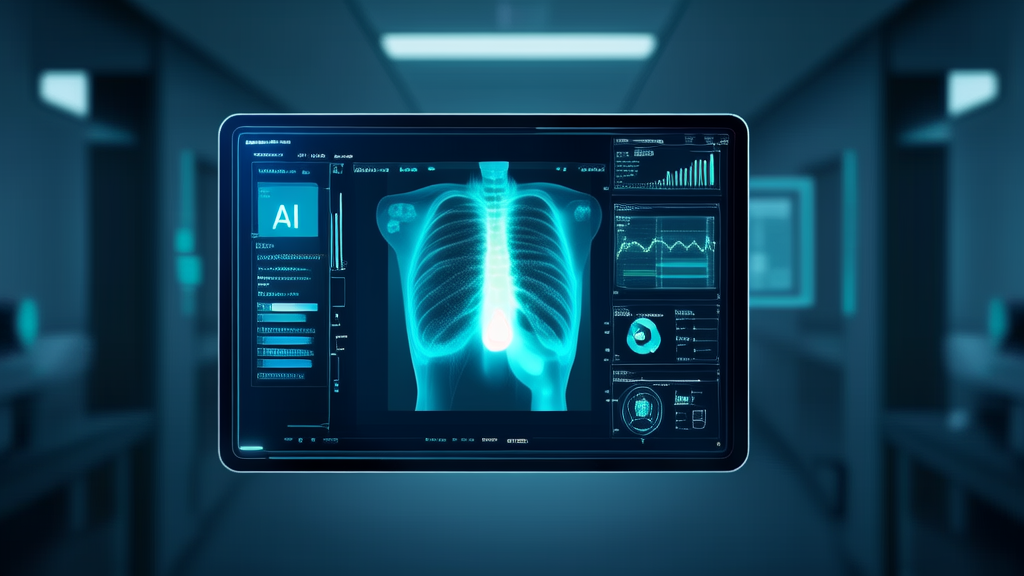🧠 Daily AI & Tech Trends
AI Detects Breast Cancer More Accurately, Saving Thousands of Lives

Unveiling the Future: How AI is Reshaping Our World
In an era where artificial intelligence (AI) is no longer just a buzzword, but a transformative force, it's fascinating to see how this technology is being applied in real-world scenarios. From revolutionizing healthcare and finance to enhancing consumer experiences, today we explore some of the most impactful AI developments that are not only shaping industries but also touching lives in profound ways.
AI in Healthcare: Saving Lives with Precision
The integration of AI into healthcare has been nothing short of revolutionary, offering new hope and precision in diagnosing and treating diseases. One of the standout examples is the use of AI in cancer detection. A recent study by Google Health, in collaboration with Northwestern Medicine, demonstrated that an AI system could detect breast cancer more accurately than human radiologists. This AI tool, which analyzes mammograms, reduced false positives by 5.7% for women in the U.S. and 1.2% for those in the UK, while also reducing false negatives by 9.4% and 2.7%, respectively. The practical impact of such advancements is immense, potentially saving thousands of lives through early and accurate diagnosis. As we look to the future, the potential for AI to further personalize treatment plans and improve patient outcomes is vast, making healthcare more efficient and effective.
Transforming Retail: Personalized Shopping Experiences
Retail is another sector where AI is making significant strides, particularly in enhancing the shopping experience. Amazon Go stores, for example, have leveraged AI and machine learning to create a seamless, cashier-less shopping environment. Customers can walk in, pick up what they need, and walk out, with their purchases automatically charged to their Amazon account. This not only streamlines the shopping process but also reduces operational costs for retailers. Moreover, AI-driven recommendation engines are becoming increasingly sophisticated, using data analytics to offer personalized product suggestions based on individual shopping habits. For instance, Sephora uses AI to provide virtual makeup try-ons, allowing customers to see how different products would look on them before making a purchase. These innovations not only enhance customer satisfaction but also drive sales, making AI a win-win for both consumers and businesses.
AI Startups Tackling Real-World Problems
The startup ecosystem is buzzing with innovative AI solutions aimed at solving some of the world's most pressing issues. One such company is Cogniac, which uses AI to analyze visual data from drones and cameras to monitor and manage infrastructure. By automating the inspection process, Cogniac helps utilities and transportation companies identify and address maintenance issues before they become critical, thereby improving safety and reducing downtime. Another notable startup is Zest AI, which applies machine learning to credit underwriting, enabling lenders to make more accurate and fairer lending decisions. This approach not only expands access to credit for underserved populations but also reduces default rates for lenders. These startups highlight the potential of AI to drive positive change and create new business models that benefit society as a whole.
Enhancing Education: Personalized Learning for All
Education is yet another area where AI is making a significant impact, particularly in the realm of personalized learning. Companies like Duolingo and Coursera are using AI to tailor educational content to the individual needs and learning styles of students. Duolingo, for example, uses AI to adapt its language lessons based on user performance, ensuring that each learner receives the most effective and engaging content. Similarly, Coursera’s AI-powered platform provides personalized course recommendations and tracks student progress, helping educators to better understand and support their students. These tools not only make education more accessible and engaging but also help to close the achievement gap by providing tailored support to students who may be struggling. As AI continues to evolve, the potential for creating more inclusive and effective educational experiences is enormous.
As we reflect on these developments, it's clear that AI is not just a futuristic concept but a present-day reality that is already making a tangible difference in our lives. From healthcare and retail to education and beyond, the applications of AI are diverse and far-reaching. As we move forward, the key will be to continue harnessing the power of AI in ways that benefit everyone, while also addressing the ethical and social implications that come with such transformative technology.
Published on 2025-07-07T00:01:07.945098